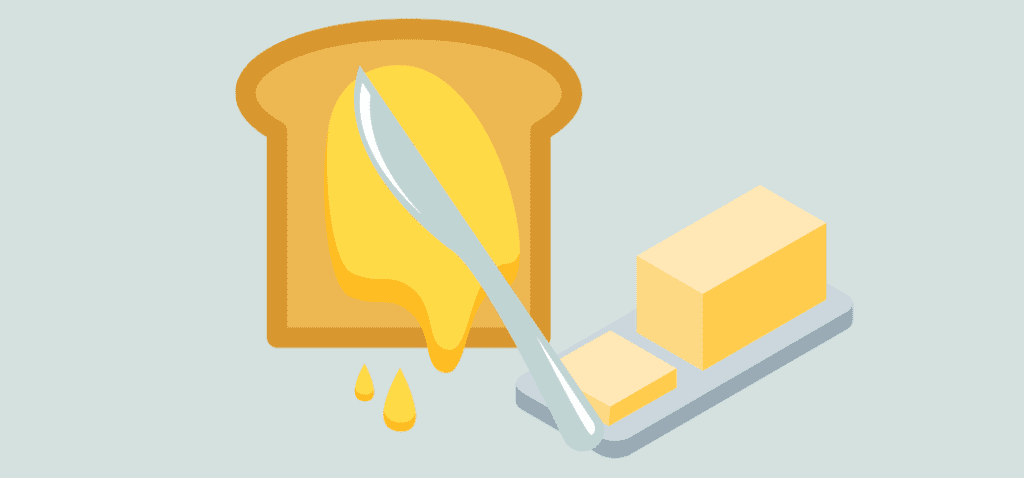Bread and butter is a favorite snack of people, but did you know it used to be a main meal for many people? The importance of this meal quickly became recognized as a way to explain something you depended upon. Today, “bread and butter” offers an analogy to highlight the importance of a lifestyle or livelihood.
These types of phrases are considered idioms or words that have taken on a deeper meaning than their literal use. They are excellent ways to show an audience the importance of a certain situation. However, it’s also essential your audience recognizes their origins to make the connection between your words and your message.
Let’s explore the origins and use of this popular phrase.
What Is the Meaning of the Phrase Bread and Butter?

Bread and butter may refer to the thing that one depends on for income or livelihood. Its use often helps explain the importance of an item or process that provides one’s sustenance and lifestyle.
For example:
- You probably don’t want to upset your boss since the job is your only bread and butter at the moment.
- The company made its bread and butter off the purchases of defunct blog sites to monetize them.
- That acting gig was her only source of bread and butter; she needed to update her resume and get back out there.
The term is hyphenated when used as an adjective before a noun, as in “bread-and-butter.”
For example:
- Bread-and-butter crime sprees, such as petty theft and car break-ins, often feed into drug and alcohol abuse issues.
- You have to consider if this job is truly providing a bread-and-butter income or if you should try for something that pays you what you are worth.
Superstitious Uses
Additionally, in some places, the term “bread and butter” is used as a superstitious incantation, usually used in fun, when two people walking together must separate around an obstacle while continuing to walk.
Uttering this phrase is reputed to ward off any permanent separations or trouble that might come between the two people in the future.
This ritual was officially documented in the 1939 Federal Writers Project’s Guide to Kansas as a widespread practice among children. The book was written to help explain various behaviors, terms, and slang found in America. However, the term has also been used in Europe, with some claiming it was Italian in origin, while others claim it came from the UK. It’s likely we’ll never nail down the origins of its use in this manner.
Bread and Butter Origins
There is a lot of divisiveness concerning the origins of using bread and butter as a figurative way to highlight one’s livelihood. But let’s first take a look at its long record of being recognized as a major source of sustenance that helped feed into the figurative analogy of the modern day.
The first possible acknowledgment of bread as a major food source is likely recorded in Lord’s Prayer, dated from the 12th century — highlighting its importance in society.

By the 17th century, butter toast, or bread and butter, is commonly highlighted as a typical food combination.
Fynes Moryson, writing in 1617, stated:
“All within the sound of Bow Bell, are in reproach called cochnies, and eaters of buttered tostes.”
Samuel Pepys recorded in his diary in 1661:
‘drinking of great draughts of claret, and eating botargo and bread and butter till 12 at night, it being moonshine; and so to bed, very near fuddled.’
By 1685, the use of bread and butter to “pertain to basic materials needs” was becoming commonplace.
Let’s Review
Bread and butter have been essential sustenance through the centuries. As a major food source, it became an analogy to explain something one depends on for survival.
Today, the term is used to highlight the importance of a job or task. It also serves as a superstitious saying to avoid permanent separation from another person.
Enjoyed reading about this idiom? Check out some others we covered:
